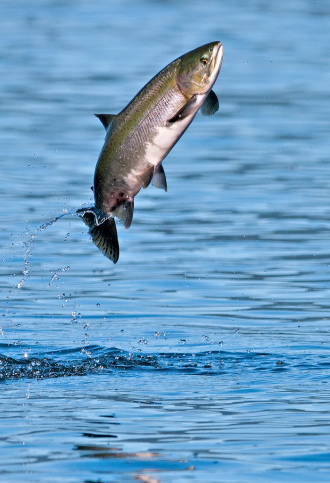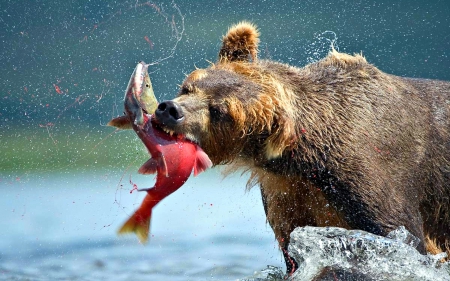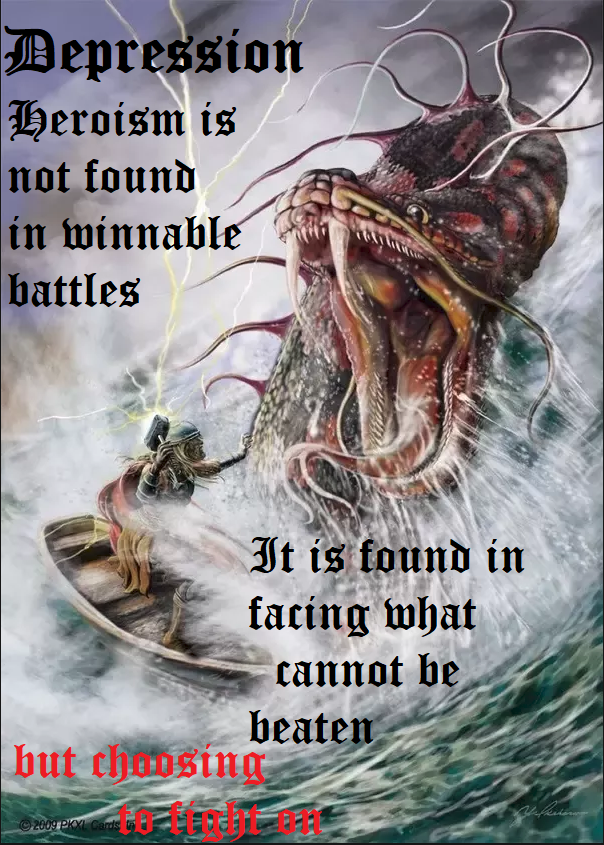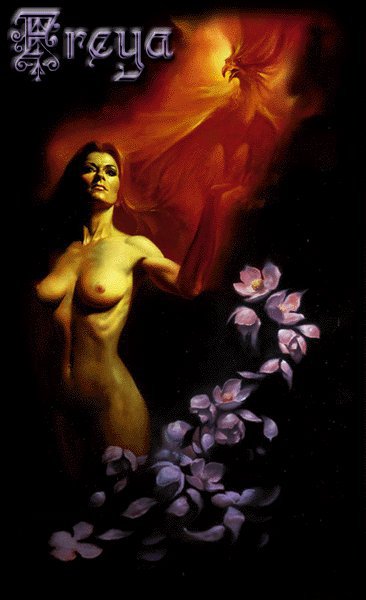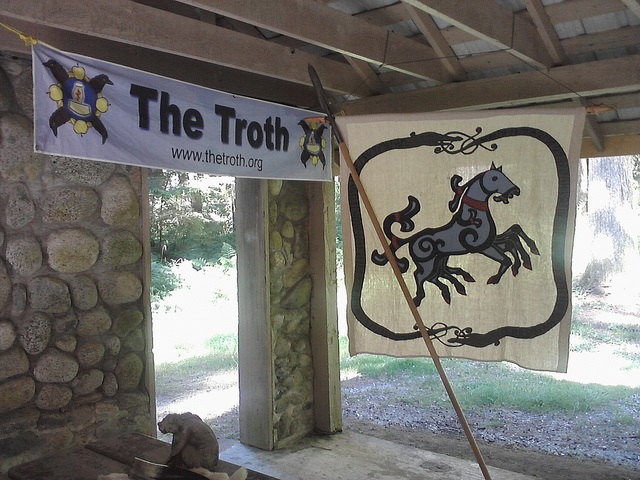Pain Meditation
A woman of my kindred has asked that I share my pain meditation, so for her, and such others as it may help, here it is.
Background:
I am a soldier, son, grandson of soldiers. Not just people who did their trades in uniform, but the kind of front rankers that do the bulk of the actual fighting. We have a history of standing into battle in this fashion that stretches back over a thousand years, our descent is from those who lived such lives and came back to have families. This gives an inherited skillset that includes a wonderful tool for dealing with pain in active settings.
In terms the army would use as it sought to teach the same lessons I had learned from before I grew my first tooth, the trick is to “eat the pain, and shit power” (don’t you love the army? Such poetry). That is you take pain, feed it to your rage, and channel it through your discipline and trained reactions to allow you to overcome whatever is in your path. It is a wonderful tool, on the tactical level. It does however have that limitation. That path is an active path, a violent and focused path, fueled by rage, turned ice cold by discipline, and utterly suited towards dealing as swiftly and decisively as possible with whatever challenge it faces. There is neither hesitation, nor remorse; there is also no reckoning of the costs. You will achieve your goals no matter the cost.
To all those who are nodding because this sounds really neat, you missed a lot of the important information. Firstly, it’s a tactical tool. There is no long term thinking, zero creativity. This is a purely reactive state. As far as a survival tool, there is literally nothing better, but it will ruin your life, and those around you if you live in this mode. You won’t consider the cost to yourself or others, you will not try to find a better way, you will simply go directly through whatever is in front of you with whatever is the quickest solution, with no consideration of anything beyond that immediate task.
The other thing you have to understand is that this is an active process, it consumes energy and causes you to harm yourself by ignoring your limits (the safety limits your body puts, like speed governors, to prevent you from tearing yourself apart with all the power you can actually generate, rather than safely channel). The more pain you are in, the more of your energy this path takes. If you are in acute pain, as a short term solution, it can power you through the bad spots. If you are in chronic pain, then this will stop you from actually living, keeping you in survival mode until you have driven away everyone you care about, and finished destroying a body you refuse to listen to or allow to heal.
I had the opportunity, and boy did it take a long time to view it that way, to undergo an ordeal after a major spinal injury, and seek answers from our gods and ancestors as to how to cope with my injuries. I was given some gifts I cannot explain, and cannot share. I was also given instruction in something to deal with my pain, an instruction that was not short or pleasant, but was effective in ways I cannot explain to anyone who has not spent years trapped in chronic pain.
I will explain the meditation.
Pain Meditation: Form and images
This is not an otherworldly meditation. This is perhaps the most difficult thing for most people with a lot of magical experience to grasp, this meditation is anchored in this world, and does not seek to take you out of your body at all.
Begin with opening your awareness.
Your back is to the Tree, Yggdrasil The world tree. Let your back rest against it, feel the bark behind you. Know that it rises above you, branches reaching all the upper worlds, roots reaching far below to the underworld itself. Feel the bark behind you, breathe deeply and let it go. Let your hands touch the ground. Feel the earth, the rough material of this world. Know that you are rooted in this world, you will not journey this day.
Take a belt, a rope, a string, whatever you are comfortable wearing, and lay it upon your lap.
Take a deep breath, feel the tree, the bark of the world tree, the pillar of this world, the axis of all reality. Take up your binder.
Let your breath go. This is your world. This is your place
Bind yourself, belt yourself, in doing so, bind yourself to the Tree which is this world, bind yourself to it because you are committing to stay here through what comes next.
Take a deep breath, let go, feel your pain, your fear, the tiredness that runs at your heels like Skoll after the moon; half a step behind, and always hungry.
You are bound to the tree, no force in the nine worlds may move you, no external force may touch you, you are safe from all that comes from outside.
Breathe in, accept that there is no external threat, and let go
Open your inward eye, your visualization.
You sit cross legged beneath the tree, before you laps a great ocean, it laps at the roots of the tree, and fills your foreground. Above you in the sky wheels a raven, slow lazy circles as he watches the tide come in, gently lapping ever closer to your feet.
Look at the sea, and know it for your pain.
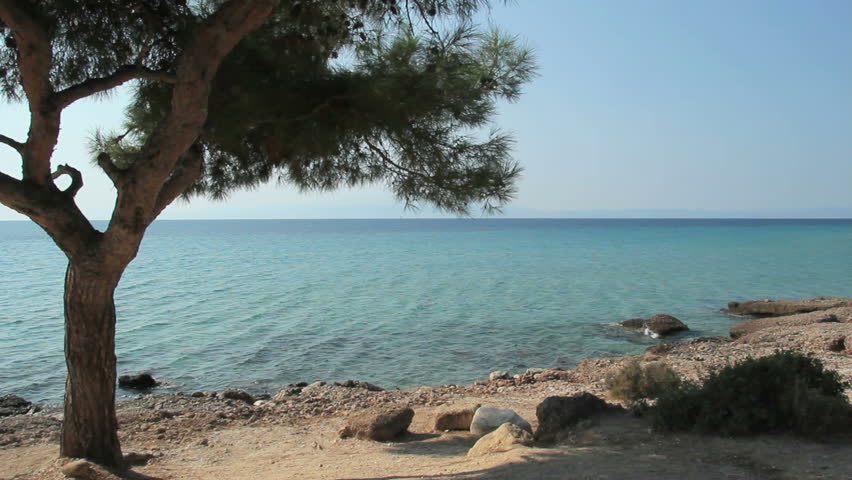
Your arts have pushed it outside of your awareness of self, have locked it away until your strength faded, for the tide is rising, and none may turn it back. It is time to meet it.
Take a slow breath in, and let it go. Watch the waves lapping ever closer to your body. Let your breath move in time with the waves.
Breathe with the waves, they are not foreign, they are a part of you. Move with them, breathe with them. Each breath, the tide washes closer until it begins to lap at your body.
The waves begin to lap at your feet and lower legs, let yourself become aware of your feet, your ankles, your arches, your calves, shins. Feel each of them, itemize each pain that you find. Learn them.
Breathe in, breathe out, the water is lapping over your legs, and with each brush of the wave you feel the pains of your legs. This is your pain, this is your body. This is not foreign, not an enemy. Relax
Bound to the tree, you are immovable. You cannot be lost, no storm make take you, no wave overcome you. Bound to the tree, you are safe from all external threats. Breathe in, breathe out.
Feel the waves wash over your knees, thighs and hips. Feel each pain as the tide washes over them, feel them, acknowledge them, own them. This is your pain, this is your body, this is no threat, no enemy. Breathe in, breathe out.
Let the tide wash over your stomach and chest, feel the pains of your gut, your back, your shoulders, chest and abdomen. Breathe deeply, let the sharp stabbing of those pains you learn to breathe shallow to avoid be felt now, accept the pain, and breathe, breathe. You are still here, still safe, the pain is part of you, your pain, your body. You are anchored in the tree and cannot be lost.
Let the tide roll over your shoulders and arms, down your hands, feel the waves taking your arms and moving them as it washes in and out. Do not fear, this is your pain. Let it guide you to the places that you force yourself to ignore while you work. Feel the pains you normally block out, accept them. Feel your hands moving in the tide.
The tide now laps at your chin, at your mouth and nose. Fear rises in you. Pain is trying to overwhelm you, and you feel the strong temptation to reach for power, to reach for adrenaline, and make the pain go away.
You are bound to the tree, no external force may harm you. No external force may move you. All that exists here is you. There is no other, no threat; no enemy.
Open your mouth, and breathe.
The tide fills your mouth, rises to cover your nose, washes over your eyes and crown of your head. You drown in the pain that rushes in to fill your body.
Breathe in, breathe out. Offer no resistance.
Breathe in, allow the pain to fill your chest.
Breathe out, let the pain flow from your chest throughout your body.
Breathe in, this is your pain
Breathe out, this is your body
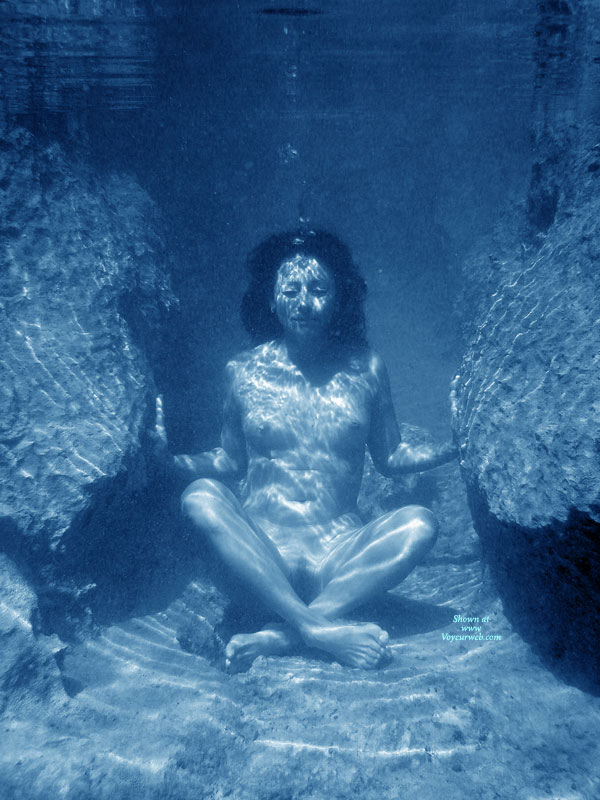
Breathe in, I claim this pain
Breathe out, this is my pain
Breathe in, I claim this body
Breathe out, this is my body
Breathe in, I love this pain
Breathe out, I love this body
Breathe in, I do not fear my pain
Breathe out, I do not punish my body
Open your eyes
Breathe in, look at the room around you
Breathe out, feel your body, feel its true state
Breathe in, rise up
Breathe out, feel the sharp pain, the aches, the bright burning wires we train ourselves to avoid
Breathe in, sway as the tree sways, move in the wind that drives the tide ashore
Breathe out, feel the pain in your limbs, in your trunk,
Breathe in, feel the edges of it, the hard edge that warns if you push, it will punish
Breathe out, this is a limit
Breathe in, you could summon your power and push past it
Breathe out, but right now, we see the limit, we acknowledge it
Breathe in, learn your body like you learn your lover
Breathe out, touch, move, allow yourself to feel
Breathe in, we do not resist
Breathe out, we accept our limits, we do not resent them
Breathe in, we thank our pain
Breathe out, we thank our protector
Breathe in, we move through the shallow waters
Breathe out, we let the pain of our resting body be known to us
Breathe in, we let the pain of our resting body teach us our limits
Breathe out, we move to those limits and not beyond
Breathe in, I accept this is my pain
Breathe out, I accept these are my limits
Breathe in, I am at peace
Breathe out, I am alive
Breathe in, this is my body
Breathe out, this is my pain
Breathe in, fill my lungs with pain
Breathe out, feel it wash through my body
Breathe in, It is still my body
Breathe out, I love my body
Breathe in, look around you
Breathe out, let your mind wander
Breathe in, is there beauty?
Breathe out, take time to look at it, let yourself get lost in it
Breathe in, is there foolishness, silliness, or humour?
Breathe out, laugh
Breathe in, pain does not preclude joy
Breathe out, pain does not preclude laughter
Breathe in, the pain is part of me
Breathe out, I accept it as the price of joy
Breathe in, look for a task to do
Breathe out, begin to work, slowly
Breathe in, think about what you do
Breathe out, experience it, feel your body
Breathe in, listen to your pain
Breath out, feel it teach you your limits
Breathe in, look at your task
Breathe out, does it require sacrifice?
Breathe in, is this an all cost task, do I need to hurt myself to finish it?
Breathe out, you can summon your power, if you need to
Breathe in, but not now
Breathe out, let go the power
Breathe in, laugh
Breathe out, accept this is your limit
Breathe in, move slowly and carefully
Breathe out, listen to your pain
Breathe in, let it fill you
Breathe out, let it guide you
Breathe in, let it know you
Breathe out, let you accept it as part of you
Breathe in, move through your task without raising your pain level
Breathe out, if you must pause, then pause
Breathe in, you will not hurt yourself
Breathe out, you love yourself
Breathe in, pain does not hate you
Breathe out, pain wants to stop you hurting yourself
Breathe in, love your pain
Breathe out, hate your pain
Breathe in, your task is complete
Breathe out, let yourself rest
Breathe in, your pain is still here
Breathe out, you are still here
Breathe in, beauty is still here
Breathe out, joy is still here
Reach down and grasp your binding
Breathe in, the pain is mine
Breathe out, this is my body
Breathe in, I am not lost
Breathe out, this is my body
Release the binding, let go the tree that anchored you
Breathe in, you are just you
Breathe out, whole and well
-At this point the meditation is done, you have taken yourself from the pain induced body fear, to body acceptance, and begun to reclaim your sense of self, sense of body. You will also have gained the passive state required to accept, perceive, and address emotional nuance in anything other than survival mode, which honestly is a threat/response system that really is a relationship killer. In the passive state you will be sensitive to inspiration, because you will no longer be actively blocking the channels that are shut down by the adrenal pathways.
You will still call upon adrenaline when you must overcome your pain to get stuff done. This is still a requirement as some tasks, especially for working people and parents, need to be done, regardless of cost to you. It is however not the only path open to you anymore.
For those people who have experienced sexual dysfunction related to pain, or a decreased arousal due to chronic pain issues, I would suggest a sensual exploration of your body as part of this meditation. I am not actually telling you to masturbate, because too often that is focused on getting enough signal through the pain to get you to your happy place, I mean sensually explore your body and rediscover the joy of being touched. Learn to see your body again as a thing of sensuality and joy, rather than simply a source of pain, a tool and a weapon.
The adrenal pathway of using rage to convert body pain into power is useful, and I will be the last one to put it down, but it is about survival, not about living. The gods chose to share this little tool with me, and allow me to regain my joy, my creativity, and such interpersonal skills as I possess at the best of times.
I was always a good killer and healer, adrenaline and tactical thinking will get you that far, but you cannot be a leader, a lover, a parent, an artist or a whole and joyous human being if all you are doing is surviving. Living requires acceptance, rather than defiance.
Notes on Effects:
This one takes months of use before it becomes instinctive. Actually, you might be able to do far better, I am really good at the active pain pathway, too much berserker in the bloodline probably, so those who are a little less drawn to self destruction will find the pathway easier than I did. The good news is, that if one of Odin’s little hardcases can make it work, anyone with half a functioning brain and no active death wish should find it tons easier.
Side effects I should warn you about, if you have been shut down creatively for a long time, your dreams will be an issue at first. Vivid, powerful, emotionally really potent. You have a back pressure to deal with, but it calms down after a while.
Empathy. When you use this often enough, you may notice an increased sensitivity to the emotions of others. This is a mixed blessing as not everything you learn will be pretty, but it also allows you to understand the effects of your own behaviour and take such steps as you feel are required to be comfortable with the effects of your actions.
You are not who you were; be prepared for the restored creativity to be different. This isn’t bad, you haven’t lost anything (well traded, like youth for maturity), you have simply added more to your awareness and this is reflected in the form and content of your creative modes.
Your sexuality may have a couple of new bits. There are some things about learning to accept and love your pain that expand the horizons a bit. Trust me, there is nothing wrong with learning new things that bring you joy, when the world has already gone out of its way to show you new things to bring you misery.
Notes on Drugs:
I am not telling you to use them, or not to use them, this is a tool I am giving you. There are other tools as well. Some tools you want to take a long hard look before taking up, and sometimes there are no other options than taking up tools that come with side effects, if you want to have a life that is useful and productive on terms agreeable to you.
I find drugs good for acute pain, and crappy for chronic. In using them only for acute pain, or really bad periods of chronic conditions you get the maximum bang for your buck, and minimum amount of side effects. That being said, many people simply are not going to be functional without medication to augment their other efforts, and the correct thing to do is just that.
The gods and ancestors gave us wonderful tools, some are magical, some are skills, and some honestly are science discovered pharmaceuticals. I kid you not, your ancestors were not stupid, and suffering for no reason is about as close to the definition of stupid as I can get. We were gifted with the need to learn, to explore, to understand, and the tools our ancestors have left us are there for us to use. Use no more than is necessary, but by all the gods, use no less either!



